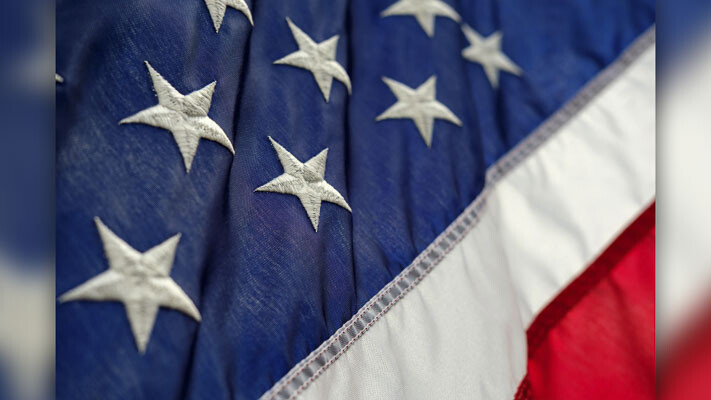
Jason Mercier states ‘our republic is worth keeping and celebrating but its future depends on all of us working together to protect it by adhering to the principles and framework loudly declared 247 years ago.’
Jason Mercier
Mountain States Policy Center
Americans will be celebrating the 247th anniversary of our Declaration of Independence on July 4. While this is undoubtedly the biggest birthday party we will participate in this year (please avoid putting Roman candles on the cake), it is important to remember what the 4th of July is all about.

The Continental Congress declared on July 4, 1776 (in part):
“We hold these truths to be self-evident, that all men are created equal, that they are endowed by their Creator with certain unalienable Rights, that among these are Life, Liberty and the pursuit of Happiness.
That to secure these rights, Governments are instituted among Men, deriving their just powers from the consent of the governed, That whenever any Form of Government becomes destructive of these ends, it is the Right of the People to alter or to abolish it, and to institute new Government, laying its foundation on such principles and organizing its powers in such form, as to them shall seem most likely to effect their Safety and Happiness.
Prudence, indeed, will dictate that Governments long established should not be changed for light and transient causes; and accordingly all experience hath shewn, that mankind are more disposed to suffer, while evils are sufferable, than to right themselves by abolishing the forms to which they are accustomed.”
The signers of the Declaration of Independence then went on to list a series of grievances against King George. After winning the Revolutionary War, our founders then turned their attention to governing a new country with the hope of avoiding these types of problems again in the future. They did this by creating a republican form of government with strong separations of power and protection of individual rights.
This brilliant design of self-governance is not guaranteed to be perpetual, however, and requires vigilance from the citizens.
This is why Benjamin Franklin warned when asked what type of government Congress had created: “A republic, if you can keep it.”
President George Washington implored Americans in his farewell address to protect our republican form of government and its critical checks and balances:
“It is important, likewise, that the habits of thinking in a free country should inspire caution in those entrusted with its administration, to confine themselves within their respective constitutional spheres, avoiding in the exercise of the powers of one department to encroach upon another.
The spirit of encroachment tends to consolidate the powers of all the departments in one and thus to create, whatever the form of government, a real despotism. A just estimate of that love of power and proneness to abuse it which predominates in the human heart is sufficient to satisfy us of the truth of this position.
The necessity of reciprocal checks in the exercise of political power, by dividing and distributing it into different depositories and constituting each the guardian of the public weal against invasions by the others, has been evinced by experiments ancient and modern, some of them in our country and under our own eyes.
To preserve them must be as necessary as to institute them. If in the opinion of the people the distribution or modification of the constitutional powers be in any particular wrong, let it be corrected by an amendment in the way which the Constitution designates.
But let there be no change by usurpation; for though this, in one instance, may be the instrument of good, it is the customary weapon by which free governments are destroyed. The precedent must always greatly overbalance in permanent evil any partial or transient benefit which the use can at any time yield.”
While a study of our country’s history must include an honest acknowledgment of the times when our leaders have failed to adhere to the principles espoused by our constitution (the greatest of these sins being slavery), the inevitable failings of man should not be an indictment on the mosaic masterpiece that is the American experiment of self-governance.
Our republic is worth keeping and celebrating but its future depends on all of us working together to protect it by adhering to the principles and framework loudly declared 247 years ago.
Jason Mercier is the vice president and director of research at the Mountain States Policy Center.
Also read:
- Letter: ‘There will be consequences’Hazel Dell resident Bob Zak criticizes Democratic lawmakers for advancing ESSB 5181, arguing it undermines parental rights and defies biblical principles.
- Op-Ed: La Center Schools — Committed to families and their childrenIn a public letter, the La Center School Board and Superintendent Peter Rosenkranz affirm their commitment to supporting families and honoring both state law and community values amid state-level scrutiny.
- Letter: Mayor blames others on homelessness problem in Vancouver while she has enabled a lawless encampment zoneVancouver resident Peter Bracchi urges city leaders to enforce laws and end permissive policies that have allowed unsafe encampments to overrun public spaces near the Share House.
- Letter: ‘Look it up for yourself’Camas resident Anna Miller encourages skeptics of Elon Musk’s claims about government waste to do their own research using official resources.
- Opinion: Defending the indefensibleNancy Churchill argues that Washington’s lawsuit against a sheriff cooperating with ICE reveals a deeper political agenda that puts public safety at risk.











Although a good article I would argue Christmas is the biggest birthday party of the year honoring the birth of our Savior Jesus Christ..